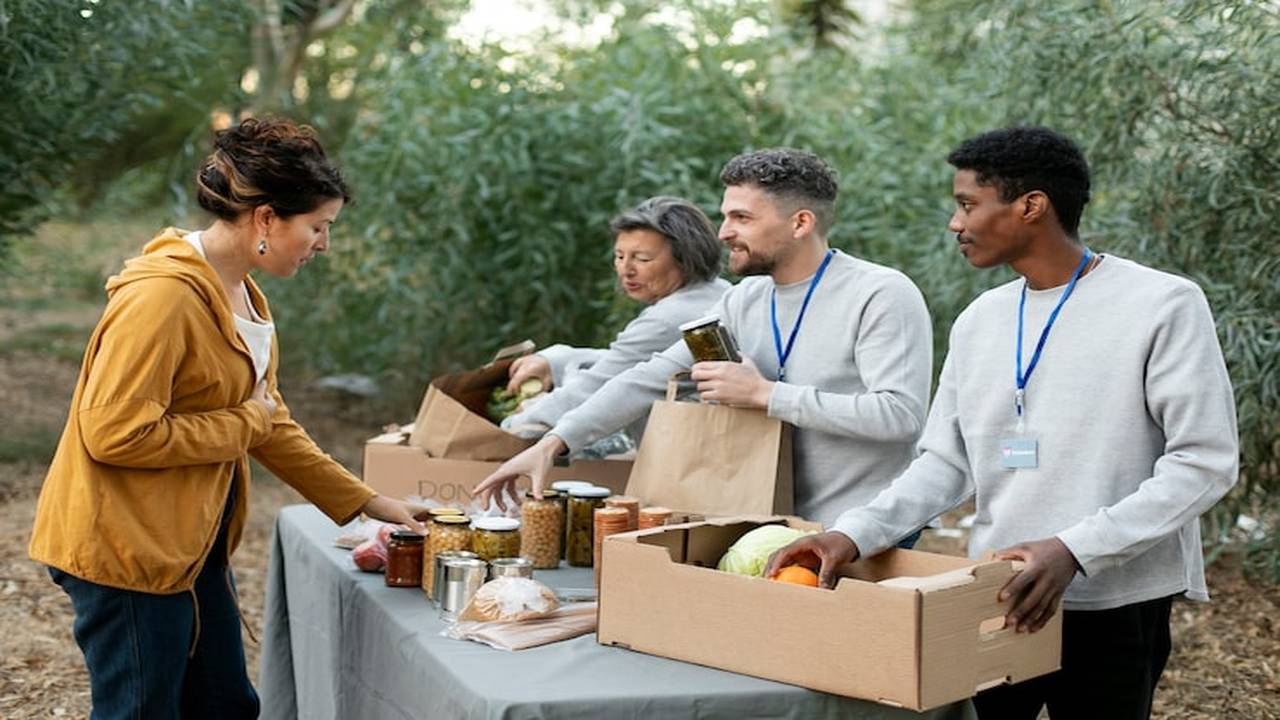 In times of crisis, the power of collaboration shines bright. Georgia-Pacific and Convoy of Hope's enduring partnership has been a beacon of hope, with over $11 million in product donations since 2008. From paper towels to building materials, this alliance exemplifies the essence of corporate responsibility and community support. Join us as we delve into the impactful journey of these two industry leaders, showcasing how their joint efforts have not only restored physical structures but also uplifted countless lives in need.
In times of crisis, the power of collaboration shines bright. Georgia-Pacific and Convoy of Hope's enduring partnership has been a beacon of hope, with over $11 million in product donations since 2008. From paper towels to building materials, this alliance exemplifies the essence of corporate responsibility and community support. Join us as we delve into the impactful journey of these two industry leaders, showcasing how their joint efforts have not only restored physical structures but also uplifted countless lives in need.
Leveraging Corporate Partnerships for Disaster Relief
In the face of natural disasters, the importance of swift and effective disaster relief efforts cannot be overstated. Georgia-Pacific and Convoy of Hope's enduring partnership stands out as a prime example of how corporate collaborations can make a significant impact in times of crisis. By donating over $11 million worth of essential products since 2008, ranging from paper towels to building materials, these two industry leaders have not only demonstrated their commitment to corporate social responsibility but have also showcased the power of collective action in restoring communities. This partnership highlights the strategic significance of aligning business objectives with social impact, where companies leverage their resources and expertise to address pressing humanitarian needs.
Sustainable Supply Chain Practices in Disaster Response
Sustainability is a key pillar in modern corporate strategies, and its importance is further magnified in disaster response scenarios. Georgia-Pacific, known for its extensive portfolio of paper-based products and building materials, plays a crucial role in ensuring the sustainability of its supply chain even during times of crisis. By emphasizing ethical sourcing practices and transparency in its operations, the company not only upholds its commitment to environmental stewardship but also sets a high standard for the industry. Through initiatives like CommonShare, companies can navigate their ESG goals more effectively, ensuring that their contributions to disaster relief efforts are not only impactful but also aligned with sustainable practices that benefit both people and the planet.
Building Resilient Communities Through Corporate Engagement
Beyond the immediate relief efforts, the partnership between Georgia-Pacific and Convoy of Hope exemplifies a long-term commitment to building resilient communities. By providing not just temporary aid but also essential building materials for reconstruction, these companies are actively involved in the process of restoring hope and livelihoods in affected areas. This approach transcends mere charity and delves into the realm of sustainable community development, where businesses play a vital role in empowering local populations to rebuild their lives and infrastructure. Through verified data and traceable sourcing, companies can ensure that their contributions lead to lasting positive impacts, fostering a sense of trust and accountability among stakeholders.
Empowering Stakeholders Through Transparency and Accountability
Transparency and accountability are foundational principles in the realm of corporate social responsibility, especially in the context of disaster response and humanitarian aid. By openly sharing information about their partnership and donation activities, Georgia-Pacific and Convoy of Hope set a precedent for other companies to follow suit. This transparency not only builds trust with consumers and investors but also allows for greater scrutiny and evaluation of the effectiveness of their initiatives. Through platforms like CommonShare, companies can showcase their commitment to ethical sourcing and sustainability, providing stakeholders with the necessary data and insights to make informed decisions about their engagement with these organizations.
Driving Innovation in Humanitarian Partnerships
In the ever-evolving landscape of corporate social responsibility, innovation plays a crucial role in shaping the effectiveness and reach of humanitarian partnerships. By leveraging technology and data-driven solutions, companies like Georgia-Pacific and Convoy of Hope can optimize their disaster relief efforts, ensuring that resources are allocated efficiently and impact is maximized. Through continuous innovation and collaboration, these industry leaders set a precedent for how businesses can not only respond to crises swiftly but also contribute to the long-term resilience and well-being of communities in need. As companies embrace new tools and platforms to enhance their ESG goals, the potential for meaningful change in global supply chains becomes increasingly tangible.
Conclusion
The enduring partnership between Georgia-Pacific and Convoy of Hope epitomizes the transformative power of corporate collaboration in disaster relief and community resilience. By aligning business objectives with social impact, emphasizing sustainable practices, and driving innovation in humanitarian partnerships, these industry leaders have not only restored physical structures but also uplifted countless lives. As we navigate a world in constant flux, their journey serves as a beacon of hope, urging businesses to embrace transparency, accountability, and ethical sourcing in their quest for a more sustainable and compassionate future.